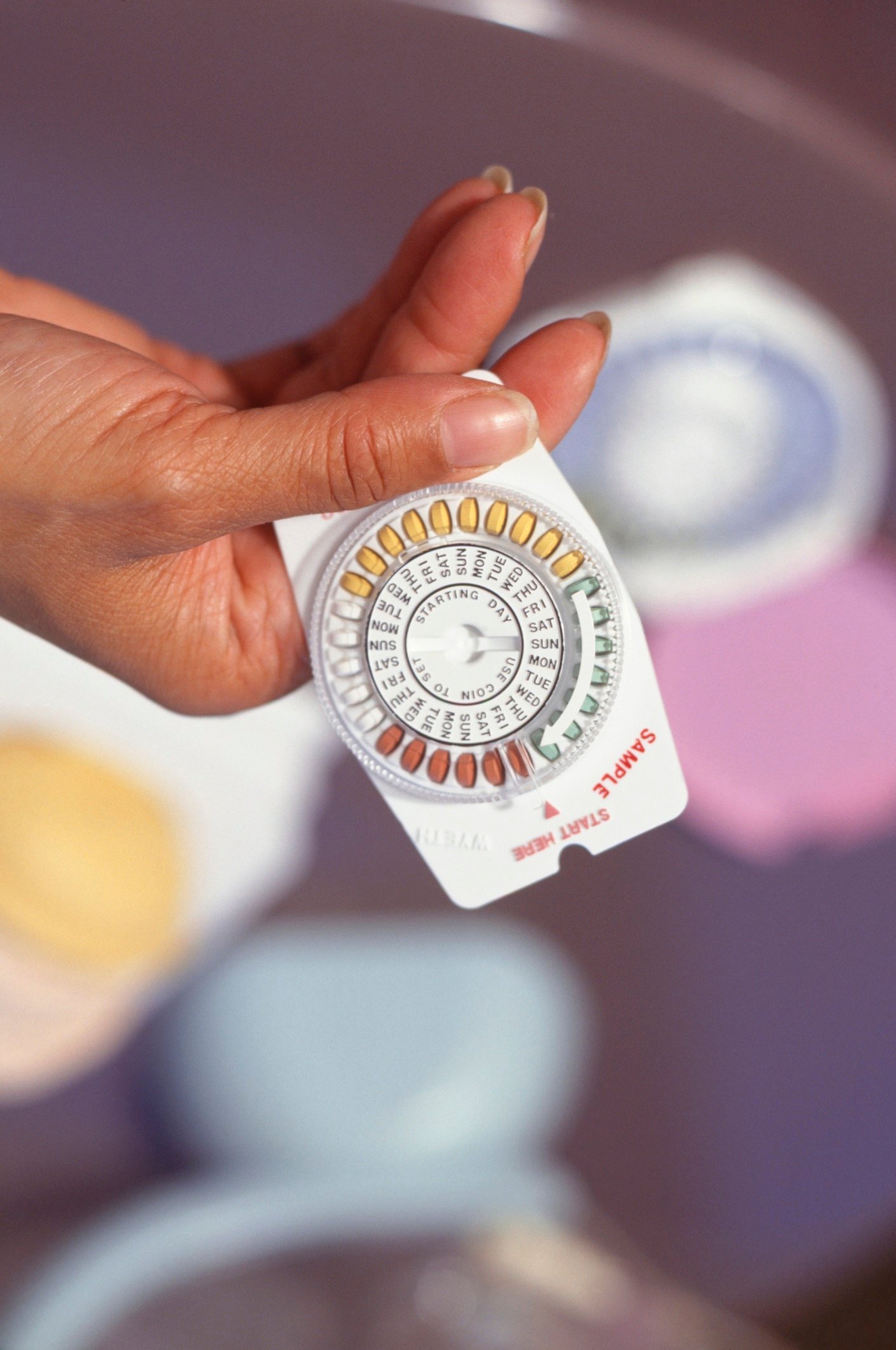 Birth control pills are a hormonal type of oral contraceptive that needs to be taken every day to prevent pregnancy. They work by stopping ovulation so that the fertilization of an egg by sperm cannot occur.
Birth control pills are a hormonal type of oral contraceptive that needs to be taken every day to prevent pregnancy. They work by stopping ovulation so that the fertilization of an egg by sperm cannot occur.
Most women are prescribed combination birth control pills which contain two types of hormones- estrogen and progestin. There are progestin-only pills available as well. These are often recommended for women who have medical reasons for avoiding estrogen. Most combination birth control packs contain pills for every day of the month (depending on the pack). The three first weeks of the pack are pills with hormones. The final week contains placebo pills or sugar pills (no hormone). This last week of having no hormones allows your menstrual period to occur.
The pill is generally safe when taken as prescribed; however, if you are considering this form of contraception, there are a few things you should know:
How effective are birth control pills?
When taken correctly, birth control pills are about 91% effective. It is important to take the pill at the same time every day to improve efficacy. If you are forgetful, there are some easy ways to remember to take your pill every day. You can set an alarm on your phone or put your pills next to your toothbrush or in other places you are likely to see them every day. If you decide that you want to become pregnant; birth control pills can be stopped at any time and periods typically return within three months.
What are some benefits of taking birth controls pills other than preventing pregnancy?
In addition to preventing pregnancy, oral contraceptive pills (OCPs) are great at helping women with irregular and/or painful periods regulate their cycles and minimize pain. OCPs can also help decrease the symptoms of PMS (premenstrual syndrome), which involve mood changes related to menstrual cycling. Another added benefit of taking OCPs is, they can also help improve cystic acne in many women. Lastly, studies have found that taking birth control pills may reduce the likelihood of endometrial and ovarian cancer.
What side effects are likely to occur?
Women may experience side effects with birth control pills but they usually go away after 2-3 months. Some common side effects are spotting between periods, changes in libido, or nausea. Doctors sometimes advise that you stick with the pill for this duration of time to see if the side effects will subside. If they don’t or you experience more serious effects such as increased blood pressure or blood clots, speak to your doctor. Serious side effects are generally rare and many people have to try different birth control pills until they find the right one for them.
What should I do if I forget to take my pill?
If you missed one pill, take your pill as soon as you remember. It’s okay to take two pills on the same day or within 24 hours. If two or more pills are missed in the 1st week, take the most recent missed pill as soon as possible (discard the missed pill). Continue taking your daily pills according to the pack. If you missed two or more pills, you may be at risk of becoming pregnant: resume taking your daily pills and avoid having sex without condoms, or use another backup birth control method for at least seven days of hormonal pills. Emergency contraception should be considered if you missed pills within the first week and had sex without a condom in the previous five days. If the forgotten pill is during days 15-21 of a 28-day pack, then skip the placebo pills. The Centers for Disease Control and Prevention (CDC) provides recommended actions for late or missed OCPs.  https://www.cdc.gov/reproductivehealth/unintendedpregnancy/pdf/248124_fig_2_3_4_final_tag508.pdf
https://www.cdc.gov/reproductivehealth/unintendedpregnancy/pdf/248124_fig_2_3_4_final_tag508.pdf
Who should not take birth control pills?
Talk to your doctor if any of the following pertain to you:
- Are over 35 years old and smoke more than 15 cigarettes per day
- Have hypertension
- Have a history of Venous thromboembolism (blood clots)
- Have a history of, or current, breast cancer
- Have liver cirrhosis or failure
- Suffer from migraines with aura at any age
It is important to remember, that while OCPs are very effective at preventing pregnancy, they do not prevent sexually transmitted infections (STIs). If you are having sex with a new partner, or you are concerned about infections, it is important to use condoms in addition to OCPs. It is recommended that you also get tested for STIs at your doctor’s office.
If you have questions about contraception or family planning and would like to schedule an appointment with a family medicine doctor at Jamaica Hospital Medical Center please call, 718-206-6942
All content of this newsletter is intended for general information purposes only and is not intended or implied to be a substitute for professional medical advice, diagnosis or treatment. Please consult a medical professional before adopting any of the suggestions on this page. You must never disregard professional medical advice or delay seeking medical treatment based upon any content of this newsletter. PROMPTLY CONSULT YOUR PHYSICIAN OR CALL 911 IF YOU BELIEVE YOU HAVE A MEDICAL EMERGENCY.

